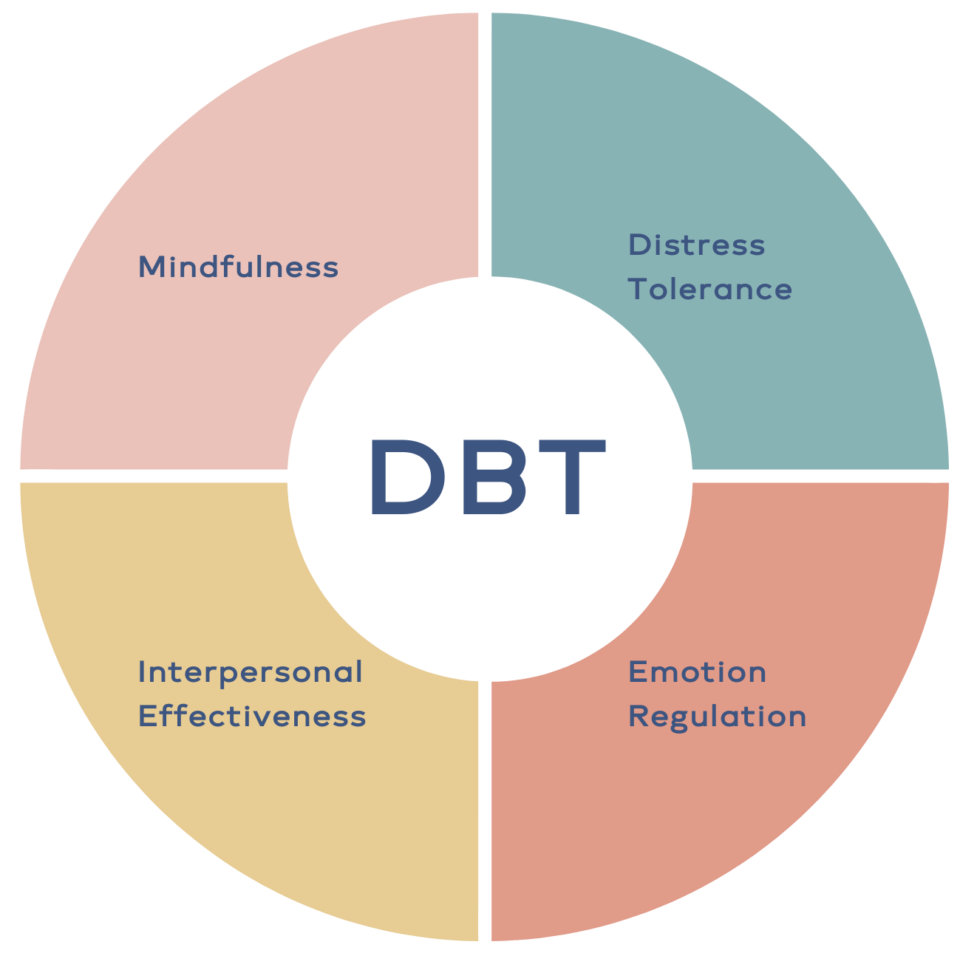Dialectical Behaviour Therapy training (DBT) is a highly effective treatment that helps people of all ages manage their emotions, develop coping skills, and build healthier relationships. Originally developed by Dr. Marsha Linehan for individuals with borderline personality disorder (BPD), DBT has since been proven to be beneficial for people struggling with anxiety, depression, PTSD, and emotional regulation issues.
No matter your age, DBT can provide tools to help navigate life’s challenges. Whether you’re a teenager struggling with emotional outbursts, an adult dealing with stress and anxiety, or a caregiver supporting a loved one, Dialectical behaviour therapy for all ages offers practical strategies that can lead to long-term improvements in mental health.
How DBT Helps Different Age Groups
DBT for Teens and Young Adults
Adolescence is a time of emotional highs and lows. Many teens struggle with intense feelings, impulsive behaviour, and difficulties in relationships. DBT provides young people with essential tools to:
- Regulate their emotions and reduce mood swings
- Improve communication skills and resolve conflicts
- Learn distress tolerance techniques to handle stress
- Develop mindfulness to stay focused and calm
Many schools and therapy programs now offer DBT for teens, helping them build resilience and confidence in their daily lives.
DBT for Adults
Adults face a different set of challenges, from work-related stress to personal relationships and mental health struggles. DBT is effective for adults dealing with:
- Anxiety and depression
- Emotional dysregulation
- Relationship issues
- Trauma and PTSD
Through individual therapy, group skills training, and practical exercises, adults can develop the tools needed to manage emotions, handle stress, and improve overall well-being.
DBT for Older Adults
Emotional challenges don’t disappear with age. Many older adults experience difficulties related to grief, isolation, chronic illness, or adjusting to life changes. DBT can help older individuals:
- Cope with loss and major life transitions
- Manage anxiety and depressive symptoms
- Improve communication and strengthen relationships
- Develop mindfulness to reduce stress and stay present
Why DBT Training is Valuable for Caregivers and Professionals
If you’re a caregiver, therapist, teacher, or healthcare professional, getting trained in DBT can make a significant impact on the people you support. DBT training provides you with tools to help others regulate emotions, manage distress, and build healthier behaviors.
Benefits of DBT Training for Professionals
- Improves your ability to support others – Whether you work with teens, adults, or seniors, DBT skills can help you guide them through emotional challenges.
- Enhances communication and problem-solving – Learning DBT techniques makes it easier to handle difficult conversations and conflicts.
- Provides structured, evidence-based methods – DBT training teaches a clear, effective framework for helping individuals develop coping skills.
- Expands career opportunities – Mental health professionals, social workers, and educators with DBT training are in high demand.
How to Get DBT Training
There are many ways to learn DBT, from online courses to in-person workshops and certification programs. Some of the most well-known DBT training providers include:
- Behavioral Tech (Founded by Dr. Marsha Linehan) – Offers comprehensive DBT training for professionals
- Online platforms like Coursera, Udemy, and PESI – Provide self-paced DBT courses
- University-affiliated DBT training programs – Many psychology and counselling programs offer DBT specialization options
Conclusion
DBT is a powerful therapy that can help individuals of all ages develop emotional resilience, improve relationships, and navigate life’s challenges more effectively. Whether you’re looking for support yourself or want to gain training to help others, DBT provides valuable tools that lead to lasting change.
If you’re a caregiver, therapist, or educator, investing in DBT training can make a real difference in the lives of the people you support. With the right knowledge and skills, you can help individuals of all ages lead healthier, more balanced lives.

